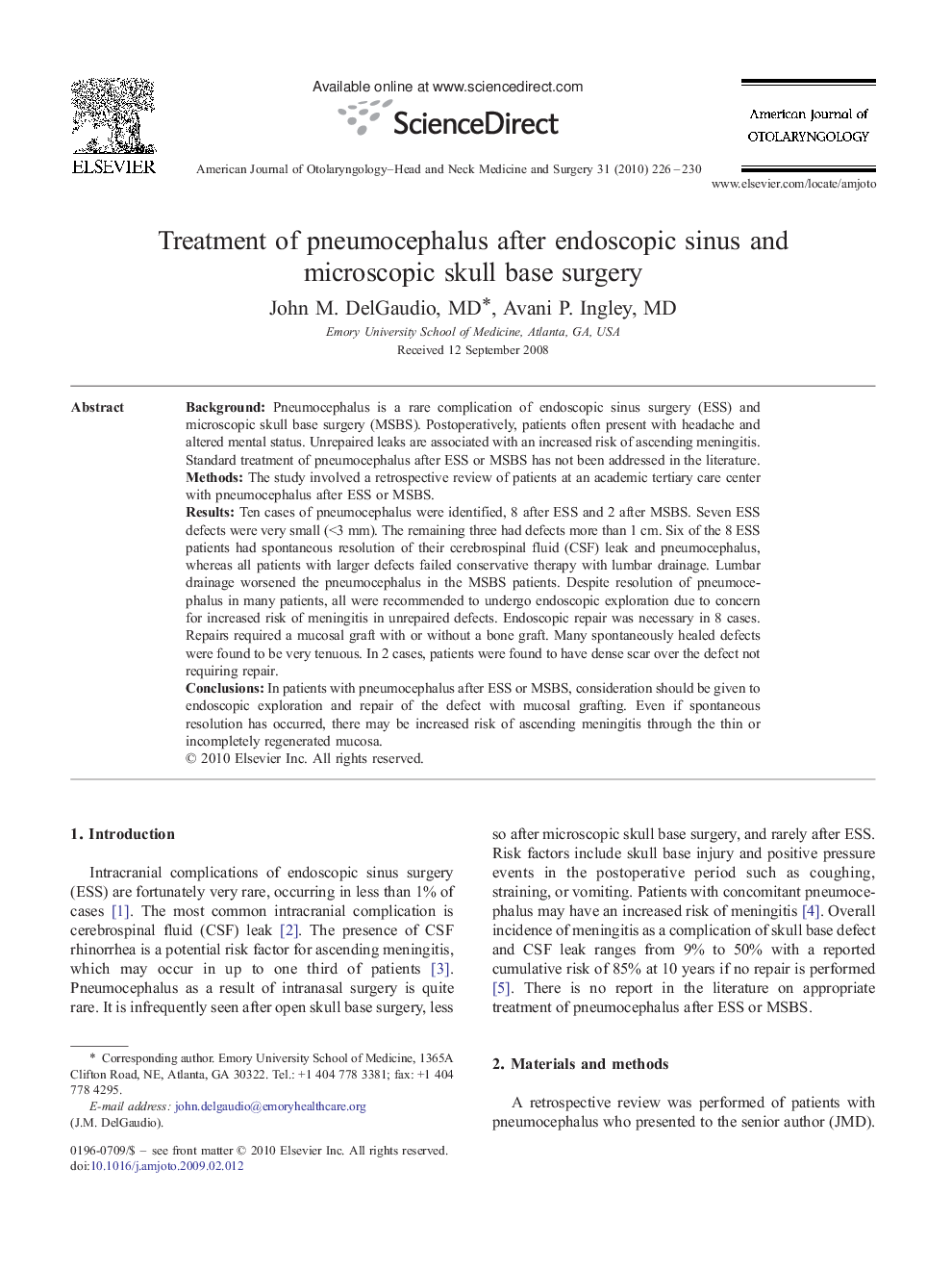| Article ID | Journal | Published Year | Pages | File Type |
|---|---|---|---|---|
| 4104073 | American Journal of Otolaryngology | 2010 | 5 Pages |
BackgroundPneumocephalus is a rare complication of endoscopic sinus surgery (ESS) and microscopic skull base surgery (MSBS). Postoperatively, patients often present with headache and altered mental status. Unrepaired leaks are associated with an increased risk of ascending meningitis. Standard treatment of pneumocephalus after ESS or MSBS has not been addressed in the literature.MethodsThe study involved a retrospective review of patients at an academic tertiary care center with pneumocephalus after ESS or MSBS.ResultsTen cases of pneumocephalus were identified, 8 after ESS and 2 after MSBS. Seven ESS defects were very small (<3 mm). The remaining three had defects more than 1 cm. Six of the 8 ESS patients had spontaneous resolution of their cerebrospinal fluid (CSF) leak and pneumocephalus, whereas all patients with larger defects failed conservative therapy with lumbar drainage. Lumbar drainage worsened the pneumocephalus in the MSBS patients. Despite resolution of pneumocephalus in many patients, all were recommended to undergo endoscopic exploration due to concern for increased risk of meningitis in unrepaired defects. Endoscopic repair was necessary in 8 cases. Repairs required a mucosal graft with or without a bone graft. Many spontaneously healed defects were found to be very tenuous. In 2 cases, patients were found to have dense scar over the defect not requiring repair.ConclusionsIn patients with pneumocephalus after ESS or MSBS, consideration should be given to endoscopic exploration and repair of the defect with mucosal grafting. Even if spontaneous resolution has occurred, there may be increased risk of ascending meningitis through the thin or incompletely regenerated mucosa.
